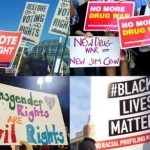ExxonMobil has re-written its Equal Employment Opportunity (EEO) policy to finally include protections based on sexual orientation and gender identity after years of resisting full workplace equality.
“Does this new policy mean that equality has come to Exxon at last? Well, sort of,” said Deena Fidas, director of HRC’s Workplace Equality Program and co-author of its Corporate Equality Index (CEI), an annual report that rates Fortune 500 companies and the nation’s top law firms on their LGBT-inclusive policies.
“This wasn’t prompted by a change of principles or corporate values, it represents Exxon’s response to President Obama’s July 2014 executive order that prohibits federal contractors from discriminating against LGBT people,” Fidas said. “Exxon had to include these explicit workplace protections or risk losing its federal contracts.”
Exxon, after all, is the only Fortune 500 company to have:
-
Rescinded basic workplace protections on the basis of sexual orientation and domestic partner benefits,
-
Formally resisted shareholder resolutions to adopt LGBT protections 17 times, AND
-
The dubious distinction of a chronically negative record on the HRC Foundation’s Corporate Equality Index
Just this past summer Exxon lied about its own record and policy on LGBT protections.
An examination of Exxon’s previous EEO statement, which is still posted on the company’s website, shows that before this month, the company did not have explicit gender identity and sexual orientation protections. The new version, posted here, includes those protections. Exxon has qualified its EEO language as being “in conformance with all applicable laws and regulations.”
“This distinction is not just semantics,” Fidas said. “Exxon has a long, established history of anti-LGBT stances. To articulate its policy through the lens of legal conformance is not an affirmative changing of course and full adoption of equality, but instead a calibrated response to retain government contracts. “
For comparison, other oil and energy companies state unequivocally that protections on the basis of gender identity and sexual orientation are company policy – not simply a nod to conforming to new regulations.
BP
It is the policy of BP and its subsidiaries to employ qualified persons without discrimination against any employee or applicant for employment because of race, color, gender, religion, national origin, disability, veteran status, military status, age, marital status, gender identity, sexual orientation, genetic information or any other protected group status and further, to take affirmative action to employ and advance in employment qualified minorities, women, individuals with disabilities, disabled veterans, recently separated veterans, active duty wartime or campaign badge veterans, or Armed Forces service medal veterans.
http://www.bp.com/content/dam/bp/pdf/careers-pdfs/careers_eeo_policy_statement.pdf
Chevron
It is Chevron’s policy to provide equal employment opportunities and to treat applicants and employees without illegal bias. It is our policy that no one at Chevron should ever be subject to discrimination on the basis of: Race, Religion, Color, National origin, Age, Sex, Gender identity, Gender expression, Genetic information, Disability, Veteran status, Political preference, Sexual orientation, Membership or nonmembership in any lawful organization.
http://www.chevron.com/documents/pdf/chevronbusinessconductethicscode.pdf
Marathon Oil
Marathon Oil Company will take the necessary action to ensure that applicants are treated without regard to their race, color, religion, sex, age, disability status, national origin, sexual orientation, genetic information, gender identity, protected veteran status or other protected status under applicable employment law.
http://www.marathonoil.com/Careers/
Shell
Shell and Motiva prohibit discrimination based on race, color, sex, national origin, age, religion, disability, sexual orientation, gender identity, veteran status, citizenship, genetic information, or other protected status under federal, state or local laws.
http://www.shell.us/aboutshell/careers-tpkg.html
“It’s long past time for Exxon to join its industry peers and a majority of the Fortune 500 by unequivocally stating that it is in fact company policy to protect workers from discrimination on the basis of gender identity and sexual orientation,” Fidas said.















